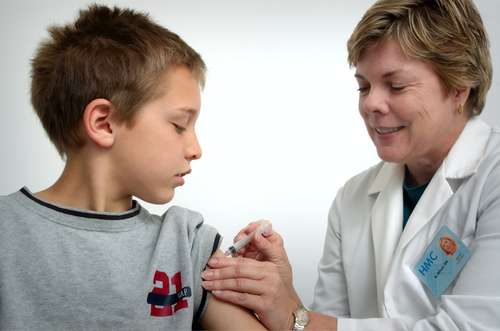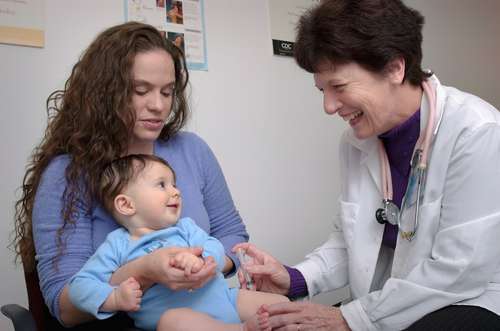It might sound almost unbelievable that a common bacteria could be responsible for millions of stomach cancer cases globally. Yet, recent medical research points to the role Helicobacter pylori plays in up to 75% of global gastric cancer cases. By and large, this microscopic invader not only causes discomfort but could potentially be one of the major risk factors in developing severe stomach conditions.
Every time you think about your everyday health, it's hard to imagine that a tiny bacterium could make such an impact. But the facts are compelling, and medical studies show that if we don’t address these risks, we may be looking at up to 12 million stomach cancer cases worldwide. It is a wake-up call to all of us about the importance of gastrointestinal health and proactive disease prevention.
Understanding Helicobacter pylori and Its Effects
This section dives into what makes Helicobacter pylori such a formidable foe. For many, the bacteria is simply known to cause stomach ulcers, but its connection to stomach cancer deepens the need for awareness. Medical research confirms that H. pylori not only infections the stomach lining but also contributes to chronic inflammation which can lead to mutations and cancer.
Helicobacter pylori is incredibly resilient. Given its ability to thrive in the acidic environment of the stomach, it quietly creates conditions that may eventually lead to cancer. Many in healthcare are now keen on studying the molecular mechanisms behind this process, and the findings are a blend of hope and caution.
Imagine your stomach as a complex city where every part of your digestive system is a neighborhood. H. pylori essentially acts like a disruptive force, causing a ripple effect that compromises the entire community’s health. Infections by common bacteria like this are subtle yet have far-reaching long-term consequences.
The Global Impact on Stomach Cancer Cases
When you consider the sheer scale—12 million potential cases—it's clear that our approach to this public health challenge needs to be aggressive. Researchers and healthcare professionals agree that stomach cancer is no longer a distant threat but a pressing concern for global health.
Worldwide, healthcare systems are grappling with not only diagnosis but also the awareness of this cancer risk factor. In communities with limited access to early screenings and advanced healthcare technologies, the dangers posed by Helicobacter pylori are particularly severe. This connection between common bacteria and significant cancer cases underscores the critical need for improved medical studies and enhanced disease prevention strategies.
Our modern lifestyles have added layers of complexity. Poor eating habits, stress, and sometimes neglect in regular health checkups only add fuel to the fire. Even though the road ahead looks daunting, increased awareness and routine examinations can serve as crucial steps in combating the rise of stomach cancer cases.
Prevention, Vaccines, and Early Screenings
Efforts to prevent Helicobacter pylori infections focus on modern prevention strategies that include vaccines, regular screening programs, and public education. It’s interesting to note that while some might compare the development of the H. pylori vaccine to cutting-edge technology in telecommunications, the principle is the same—eliminating a small, yet powerful, threat before it cascades into a larger problem.
Healthcare professionals reiterate the significance of early detection. Just as you wouldn’t ignore a warning light on your car’s dashboard, paying attention to even minor symptoms can make a big difference in long-term stomach health. Timely screenings can identify infections early, leading to prompt and effective treatment that can forestall the progression to stomach cancer.
Moreover, advancements in medical research have paved the way for innovative therapies aimed at eradicating Helicobacter pylori from the system. It’s not a silver bullet yet, but with more robust clinical trials and a greater push towards preventive healthcare, there’s hope that future generations might face significantly lower risks of stomach cancer.
Another encouraging aspect is the growing dialogue in cancer prevention circles about the importance of nutritional habits and lifestyle choices. By reducing risk factors such as poor diet and stress, and by incorporating regular medical checkups, individuals can greatly improve their gastrointestinal health. It’s a holistic approach—one where medicine, lifestyle, and preventive care all blend together for a better outcome.
What This Means for Daily Life and Public Health
The looming statistics present a challenge, but also a clear pathway for transformative public health action. For those curious about the day-to-day impact, it's a reminder that simple changes you make can have profound effects on your overall health. Regularly reviewing your health screenings, avoiding known risk factors, and following a balanced diet are practical steps that contribute to cancer awareness and disease prevention.
In communities and healthcare institutions, education plays a critical role. Parents, educators, and community leaders can help spread awareness by discussing the importance of medical research in battling these silent dangers. As more people start assuming responsibility for their well-being, collective action can drive better healthcare solutions tailored to combating common bacteria like H. pylori.
On a personal note, maintaining a dialogue with your healthcare provider about any symptoms or concerns is key. Whether you are dealing with minor digestive issues or just looking to bolster your overall health, preventive measures and timely interventions can prevent what could otherwise be a life-threatening scenario. As you can see, proactive steps can yield benefits far beyond what we might initially understand.
Wrapping It Up
In summary, emerging research on Helicobacter pylori underscores a significant challenge facing global health today. The potential of this common bacteria to contribute to up to 12 million stomach cancer cases is alarming but also serves as a catalyst for change in public health approaches. Emphasizing early screenings, adopting healthier lifestyles, and investing in vaccine research are crucial steps toward minimizing cancer risk factors.
While the numbers may seem daunting, knowledge is power. By staying informed and proactive, you empower yourself to make decisions that strengthen not only your stomach health but your overall well-being. Remember, a few simple changes today can make a monumental difference tomorrow!




